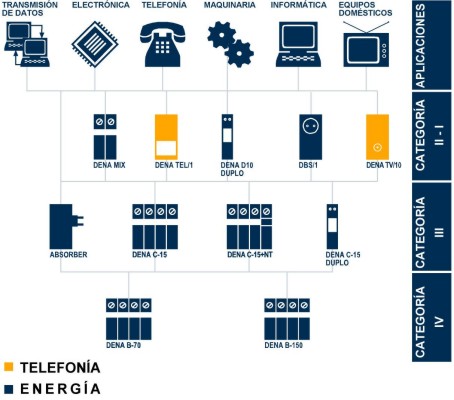Lightning Protection System
- Thứ bảy - 03/05/2008 10:50
- |In ra
- |Đóng cửa sổ này

External System
Devices used to cover the frame of a building from elements situated in the exterior of the building and people.
Active protection: Arresters that by one means or another, emit an ion flow directed towards a cloud , increasing the probability of discharge over them.
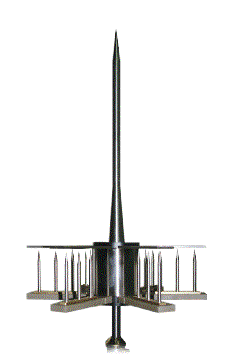
INGESCO PDC. ESE lightning rod approved by UNE 21186. It has been manufactured since 1984.
The INGESCO Air Terminals have a NON electronic early streamer emission device which leads of lower cost of maintenance, as well as a guarantee of functionality after various discharges.

Invented by Benjamin Franklin in 1760, this device is the most common and historically perhaps the best known. This system is formed by one or more capture pointed situated at prominent areas of a structure.
Statistically its zone of protection is calculated in a radius approximately equal to the height of the air terminal from the ground.
Franklin Lightning Rods are the optimal system for protecting structures where height dominates the area to be protected.
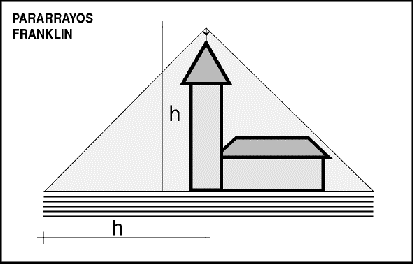
Passive protection: Systems that do not provoke disruptive arcs (lightning strikes). It does not increase the probability of discharge at a protected building (preventative action.)
Of the passive systems, the one with the best guarantee, is known as the Faraday Cage,
A building completely covered in a metallic network which is connected by conductors to a wide grounding area is completely protected against any atmospheric flash
Also, excellent protection can be provided if the continuous conductor is substituted by a mesh or network of conductors. Given correct design and coverage study, optimal conductor routes and distances can be established
In this type of installation, like any means of protection, the efficiency of the dissipation points or grounding points should be maintained as perfectly as possible
This system is recommended for facilities within areas of high lightning flash occurrence or buildings of historical interest, as well as others
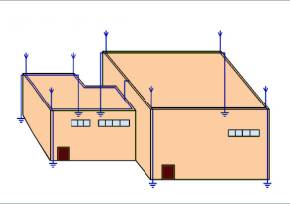
FARADAY CAG
Internal System
All equipments connected to the mains, telephone or data networks are exposed to the effects of surges.
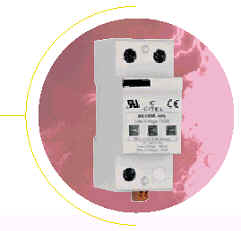
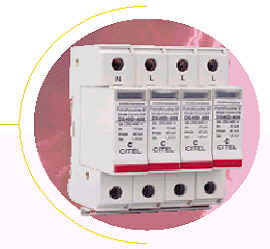
Transitory surges are very high spikes of voltage of the order of kV, that can infiltrate through the electrical, telephone and data lines. These spikes are of very short duration (ms) and for this reason the normal, fusible, magneto-thermic protective equipment, differentials, etc.. are not designed to detect or to react to this type of phenomena.
Causes of surges:
- Atmospheric origin directs or indirect discharges.
- Connection and disconnection of equipment in the own company or high current consumers.
- Maneuvers of commutation.
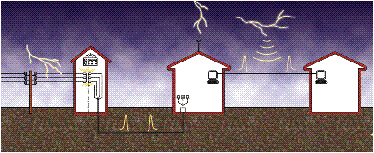
Surge damages / effects:
- Inoperability of computer and communication systems.
- Destruction of electronic components of robots in industries.
- Failures and Losses of data in computer centers, banking companies, organizations ...
- Destruction of equipment of alarms or fire detection. Etc ...
Scaled Protection against transitory surges:
The installation of scaled transitory protection elements is indispensable, in that in a convenient, simple and practical way, security and continuity of use of electric and electronic equipment is ensured.
The effectiveness of scaled transitory surge protection depends principally on two factors;
- Adequete selection of electric dischargers.
- Its correct installation.
